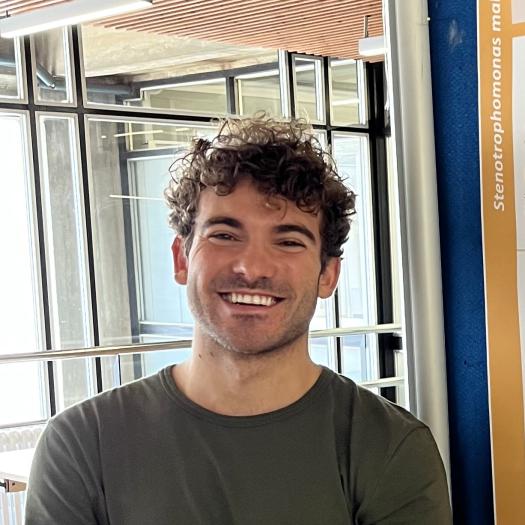DC8 - Joan Lluis Pons Ramon


Project title: “Functional and evolutionary genomics of brown algal immune-related genes for the future breeding of pathogen resistance in brown algae.”
Advisors: Marck Cock, Yacine Badis, Claire Gachon
Home institution: Station Biologique de Roscoff, CNRS
Summary: my PhD project involves the functional and evolutionary genomics analysis of immune-related genes in brown algae. I apply advanced genome editing techniques and bioinformatics analysis to characterize pathogen responses, aiming to inform breeding strategies for disease-tolerant seaweeds.
Contact: joan-lluis.pons-ramon@sb-roscoff.fr
Planned secondment(s):
At IAGE with Franz Durandet to gain industrial experience and design algal pathogen ddPCR detection probes,
At UIBK with Sigrid Neuhauser to explore spatiotemporal regulation of selected algal mRNAs, including LRR-ROCO genes at the cellular scale using single molecule FISH.
You can watch the presentation of my PhD project here!


